These Beauty Educators Want to Fix Social Media's Misinformation Problem
When it comes to the subject of beauty, disambiguating fact from fiction is only becoming more difficult. There's an endless supply of information that can leave us with more questions than answers, particularly when it comes to products and ingredients. Is beef tallow really a natural sunscreen? If you eat carrots every day, will it give you a glow-y tan? Is vitamin C necessary in a skin-care routine? There may be varying degrees of risk with these claims (please, go seek out a labeled, proven sunscreen rather than turning to cow fat), but the reality is that confusion and misinformation run rampant on social media.
Across TikTok, Instagram and YouTube, the beauty community has grown into a sales-generating, viral gold mine. This success has morphed many of these platforms into black holes of sponsored posts, undisclosed partnerships, falsities and myths. But there's an equally powerful movement against this: Beauty educators armed with backgrounds in retail, product development and cosmetic chemistry are laying down cold, hard, science-based facts every time a new overhyped product, dangerous ingredient falsehood or too-good-to-be-true trend goes viral.
They include The Lipstick Lesbians, as well as cosmetic chemists like Ron Robinson, Javon Ford, Chemist Confessions and Lab Muffin Beauty Science, who garner thousands, and sometimes millions, of views and likes on their posts, and are becoming go-to sources for fact among all the fiction. The subjects they explore run the gamut, from explaining why brands use the same formulations across products and debunking flax seed as "nature's Botox," to cracking open the lies surrounding "clean beauty" and exposing unregulated terms like "medical-grade" skin care.
Get to know them (and their biggest misinformation concerns) below.
Javon Ford, @JavonFord16
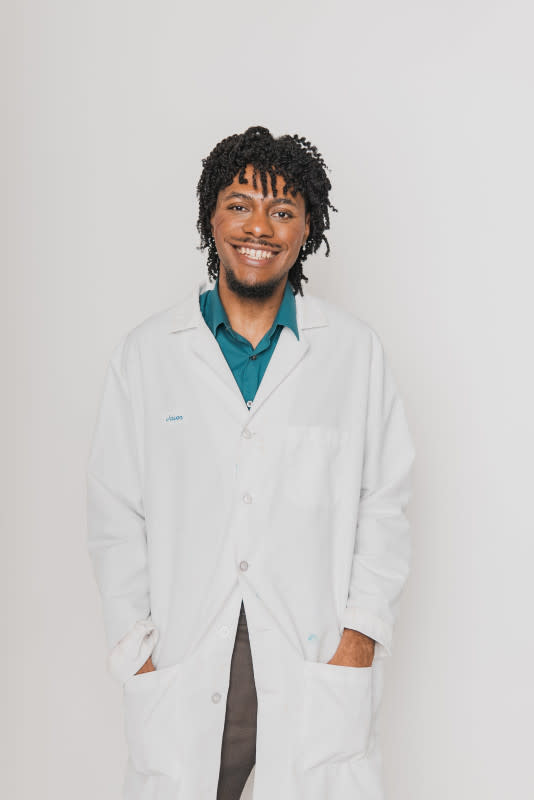
Photo: Courtesy of Javon Ford
"Sometimes I'll make a response video if I get tagged in something like 15 times," Javon Ford quips to Fashionista over the phone. The Los Angeles-based, Memphis-born cosmetic chemist has garnered 418,000 followers across social platforms thanks to his charming, no-nonsense breakdowns, helping viewers understand impossible-to-pronounce ingredients, product formulations, viral products (they don't need to buy) and more.
Before becoming a TikTok educator, Ford graduated from Howard University with a Bachelor of Science and fervently pursued a career as a cosmetic chemist, but couldn't secure a job in the field. "It's one of those jobs where you can't get experience without somebody taking a chance on you," he tells Fashionista. Eventually, working as a nuclear engineer in South Carolina, Ford started his own skin-care company on the side. He then joined TikTok because of a move to Los Angeles in 2019 and a dream to become a screenwriter.
"I was working on this concept trailer for a TV pilot," Ford recalls. Needing to raise $10,000 to pitch, he promoted a Kickstarter on the app. "I made a couple of videos on that and then by the fourth video, I just randomly made a skin-care video, and that blew up."
Since then, Ford has become an authority on all things beauty chemistry, a role he relishes. "I just want people to get the value for what they're paying for," he says. Ford is likely a favorite amongst those bewildered and fatigued by BeautyTok. "One word I am so tired of hearing online is, 'obsessed.' No one is obsessed with that many products. I don't care how good it is," he says.
Cutting through the noise isn't always easy, though: Beauty educators consistently get accused of aligning themselves with a brand, product or big pharma in general, and have their scientific opinions written off as marketing.
"Even when I mention research papers, people don't trust them because they say that those researchers probably got funding from this organization," Ford explains. "So you're trusting a random person on TikTok who's also selling you something and still has a very biased approach to telling you that another product is bad?" he laughs. "I don't know what's going on."
Ford's recent posts span a breakdown of the new Milk Makeup jelly blush, the trend of washing hair with Dawn for the perfect silk press and an explainer on why maraschino cherries sharing a component with formaldehyde doesn't make them dangerous. "Uh uh," he tuts in the TikTok. "Let's not do this. This is how misinformation spreads."
Dr. Michelle Wong, @LabMuffinBeautyScience
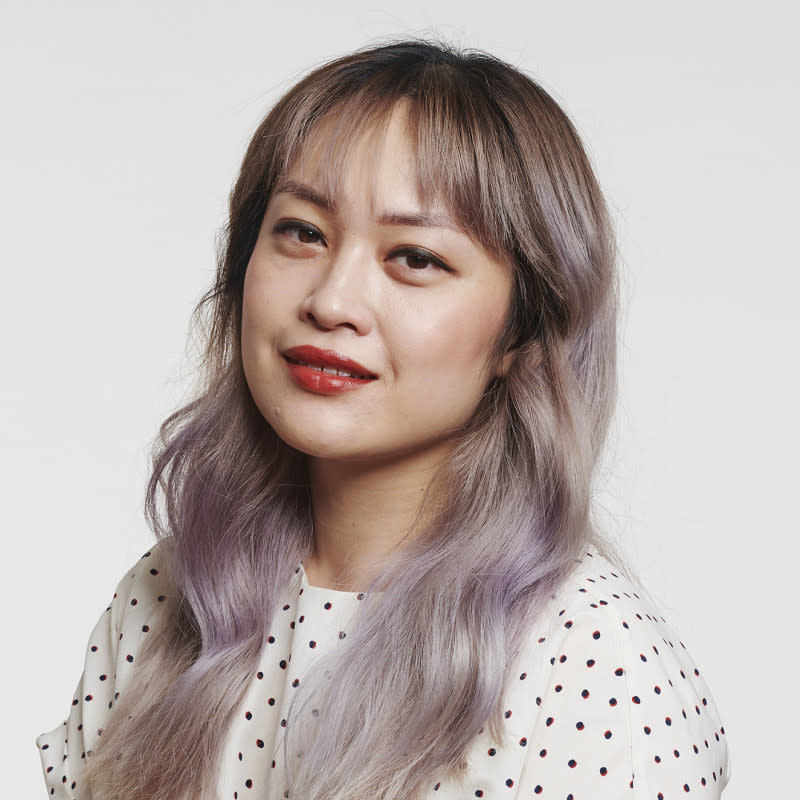
Photo: Courtesy of Lab Muffin Beauty Science
"The main thing that motivates me to post is how frustrated I get at misinformation," says Dr. Michelle Wong, an Australian cosmetic chemist who has been educating as Lab Muffin Beauty Science since 2011, when she launched her blog (which she's since expanded to Instagram and YouTube). However, she was reluctant to install TikTok. "I heard it was really addictive and full of misinformation. Eventually, I installed it and I saw all of this for myself. It annoyed me enough to start an account to debunk the myths that were so rampant, and spreading unopposed," she tells Fashionista.
Dr. Wong's style is irreverent, frank and even satirical, beating fearmongers at their own game. "Myths tend to be a lot easier to understand, and they appeal to us on a gut level. They only take a few seconds to explain, rile up your emotions and perform a lot better on social media than the actual truth, which is a lot more nuanced and a lot less exciting," she says. So, she found a way to make the truth entertaining.
Despite her playful demeanor, the chemist is alarmed by the long-term implications of inaccuracies on social media spiraling out of control.
"As an Australian, one of the most frustrating marketing tactics is sunscreen brands encouraging people to be scared of particular sunscreen ingredients, usually chemical sunscreens. It's opportunistic marketing that ultimately becomes a big public health problem," she says. "A lot of clean beauty myths are also pushed to discourage people from getting vaccines and cancer treatments, which are life-saving medical interventions. I like to think that by debunking 'clean beauty' myths, I'm helping people develop their critical thinking skills with an everyday topic. Then hopefully when they do have to make a decision that's much more crucial for their health, they'll be better equipped to handle any misinformation."
Gloria Lu and Victoria Fu, @Chemist.Confessions
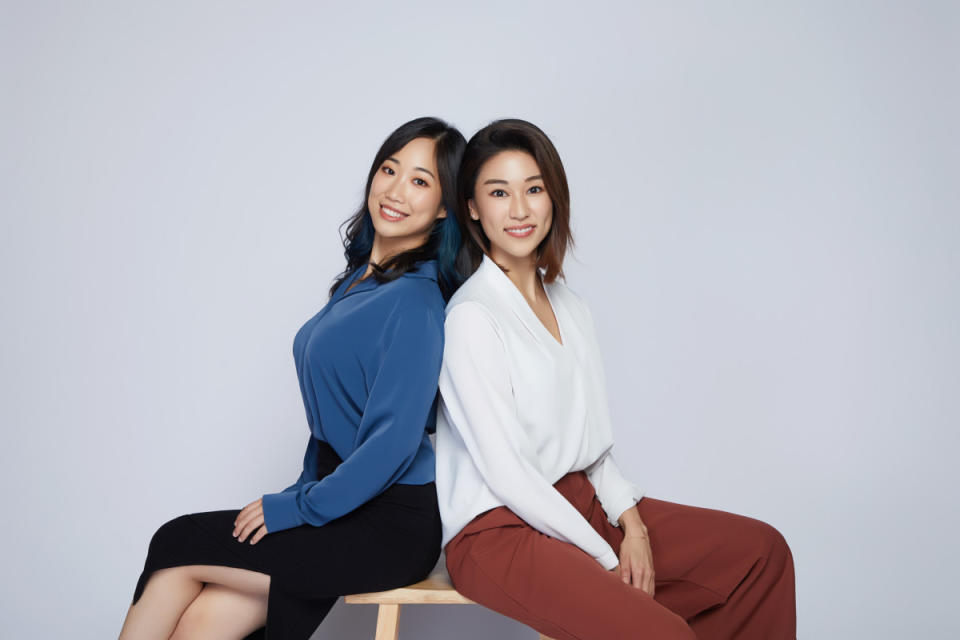
Photo: Courtesy of Chemist Confessions
Victoria Fu and Gloria Lu, the duo behind Chemist Confessions share a lot of Dr. Wong's concerns. "I'll be honest, scientific communication always feels like an uphill battle," Fu relents. "There's always resistance because everyone on social media is trying to get their 15 seconds of fame with a hot take."
Fu explains that the implications of even humoring trends like "clean beauty" and "clean ingredients" reach much further than we think.
"Probably 99% of the ingredients that are [deemed dangerous] don't deserve the negative press," she says. "Consumers have more power than they realize. Once an ingredient gets 'canceled' the industry will shift to an ingredient alternative which is usually less understood and lacks a lot of testing. Parabens and phenoxyethanol are examples of this. Chemists are then pushed to use alternative preservatives which may not be as efficient or well-tested, resulting in skin care that may not be as well-preserved and have a higher potential to cause skin irritation."
Ron Robinson, @RonRobinsonCosmeticChemist
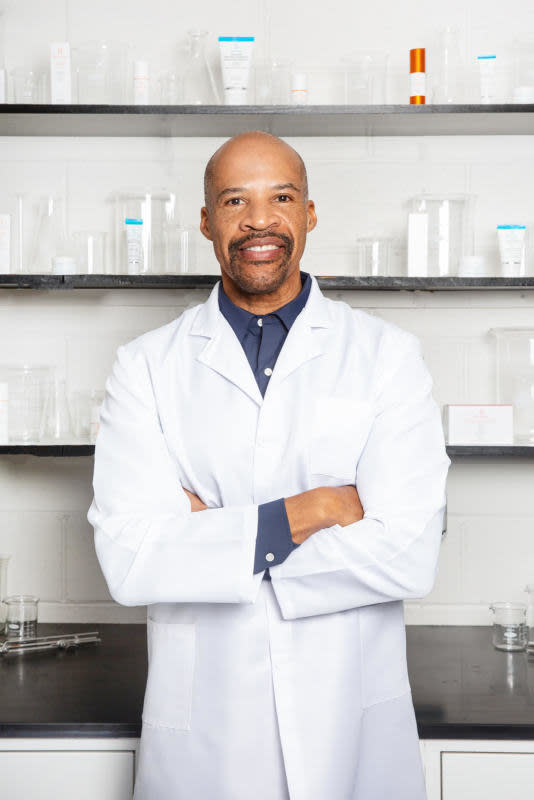
Photo: Courtesy of Ron Robinson
Ron Robinson, a cosmetic chemist and the founder and CEO of skin-care brand BeautyStat, has been in the industry for decades. "When I launched BeautyStat 15 years ago as a blog, my goal was to educate the consumer on which products do and don't work, helping them cut through the clutter so they can make better purchase decisions," he tells Fashionista. Even back then, people were fervently looking for more transparency in their skin care.
However, Robinson has played a balancing act with his role as an educator and entrepreneur. "I don't only recommend BeautyStat products as I realize that there are a lot of great products on the market. Consumers see this and really appreciate that I am neutral and this seems to further gain their trust in me and my brand," he says.
While he's more optimistic than other educators when it comes to resistance to expert and scientific takes, he does warn that, as consumers, we should be looking for trustworthy narrators: "Make sure your sources have credentials and never rely on just one; rather, curate a few that can be your go-to sources for information. After taking in those perspectives, use your best judgment."
Alexis Androulakis and Dr. Christina Basias Androulakis, @TheLipstickLesbians
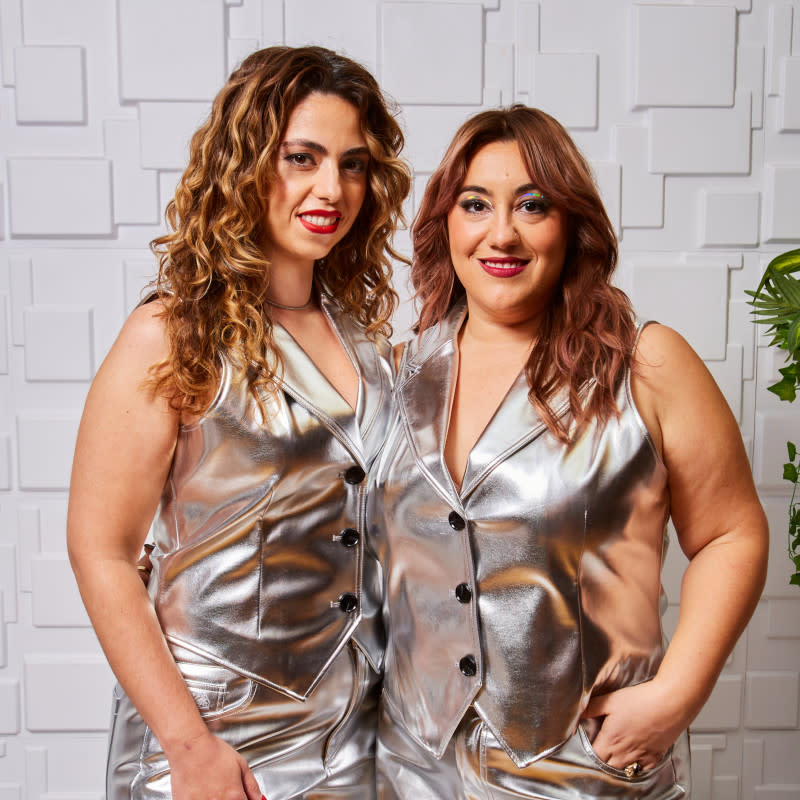
Photo: Courtesy of The Lipstick Lesbians
Alexis Androulakis, a beauty product developer, and Dr. Christina Basias Androulakis, the camerawoman equipped with a doctorate in education and all the right questions, are the beauty-educating power couple behind The Lipstick Lesbians.
Since first going viral on TikTok in December 2022, Alexis has become the face of makeup education, teaching viewers all about hot pours, varying textural formulations, how to determine where a foundation was produced by feel or label (Korean formulations are bouncy and Italian ones luxurious) and why testers may look cracked and funky in store but not when you bring the product home. Hypnotizing and kind of like sneaking into a class way above your grade level, their videos don't pander, but still manage to make impenetrable information accessible to their almost 700,000 TikTok followers.
"It's my insatiable curiosity then coupled with what I like to call Christina's magic," Alexis quips. "Christina's one of the best question-askers I have ever met. It's probably why she's my wife. But she also understands the fact that the consumer doesn't know all the information that I do."
These adorable and informative back-and-forths are filmed in Sephora, Ulta, Target and a slew of department stores. After all, Alexis began her beauty career as a Nars artist at a counter inside a New Jersey Lord & Taylor. This eventually led to her completing a competitive program at FIT in New York in cosmetics and fragrance and an illustrious career in product development.
"The mission of the content is beauty literacy for every single person cross-generationally, no matter where they are in their journey with makeup," she says. "We vow to be able to teach you even if you're an expert, working in Sephora, or someone who's just picked up a makeup brush for the first time."
Education aside, Alexis says just wants people to feel more beautiful; something she's been passionate about since her Nars counter days. "This literacy is going to unlock your ability to speak a lot more beautifully to yourself, especially once you have confidence in your ability to create and express art on your face."
Never miss the latest fashion industry news. Sign up for the Fashionista daily newsletter.


